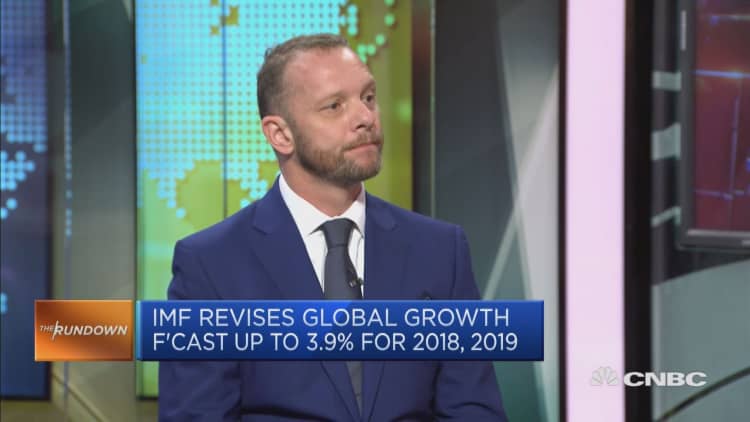
The U.S. economy is on track for its next recession, according to a prominent research firm, but it's not likely to be that severe.
"We expect the economy to slip into a technical recession in early 2020," Andrew Staples, director of the Economist Intelligence Unit for Southeast Asia, told CNBC's "The Rundown."
A decade after the global financial crisis, the United States is expanding at its fastest pace in more than two years, having experienced growth of 3 percent or more for two consecutive quarters.
But a long period of U.S. economic growth could be interrupted in the coming years, despite a historically low unemployment rate of 4.1 percent, and record-shattering momentum on Wall Street that added trillions to the value of stocks in 2017.
"The U.S. economy has been motoring ahead for some time now, and in fact, that recovery is long in the tooth," he said.
A new report by the Economist Intelligence Unit warns, however, that the prospect of further, more aggressive tightening of interest rates by the Federal Reserve will be too much for the U.S. economy to bear.
"We're forecasting the Fed will be hiking rates three times this year, perhaps another four times next year, and we're forecasting a mild recession in early 2020," Staples said.
The research house doesn't expect personal and corporate tax cuts in the United States to lead to a surge in business investment, because it believes the economy is already toward the end of a regular business cycle.
"Even if they did, or if Mr. Trump were able to pass a major infrastructure spending package, they would prove inflationary, causing the Federal Reserve to respond with a faster pace of monetary tightening that would offset the positive effect on growth," the Economist Intelligence Unit report says.
However, Staples doesn't think the recession will last long.
"We think it would be very mild, and we think if you compare the States with other advanced economies around the world, we still think the States is going to be in quite a good position to take the appropriate monetary action and cut interest rates," he added.
The report said fiscal stimulus and a series of cuts by the Federal Reserve to its policy rate will help the U.S. economy to bounce back in 2021 and grow by 2.1 percent, followed by growth of 2 percent in 2022.


